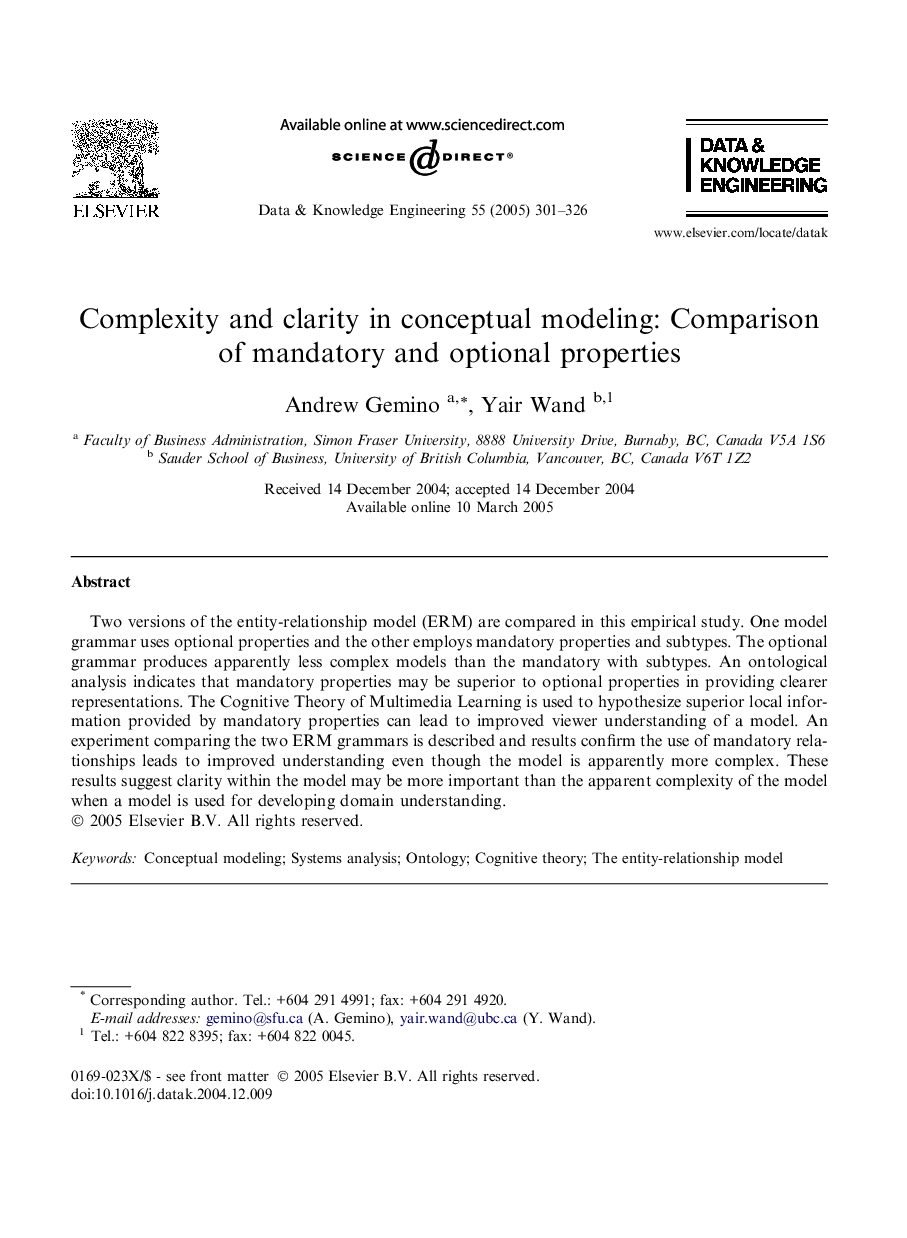| Article ID | Journal | Published Year | Pages | File Type |
|---|---|---|---|---|
| 10321257 | Data & Knowledge Engineering | 2005 | 26 Pages |
Abstract
Two versions of the entity-relationship model (ERM) are compared in this empirical study. One model grammar uses optional properties and the other employs mandatory properties and subtypes. The optional grammar produces apparently less complex models than the mandatory with subtypes. An ontological analysis indicates that mandatory properties may be superior to optional properties in providing clearer representations. The Cognitive Theory of Multimedia Learning is used to hypothesize superior local information provided by mandatory properties can lead to improved viewer understanding of a model. An experiment comparing the two ERM grammars is described and results confirm the use of mandatory relationships leads to improved understanding even though the model is apparently more complex. These results suggest clarity within the model may be more important than the apparent complexity of the model when a model is used for developing domain understanding.
Related Topics
Physical Sciences and Engineering
Computer Science
Artificial Intelligence
Authors
Andrew Gemino, Yair Wand,
